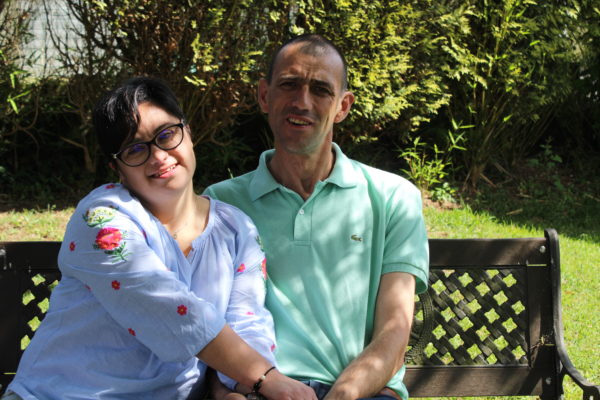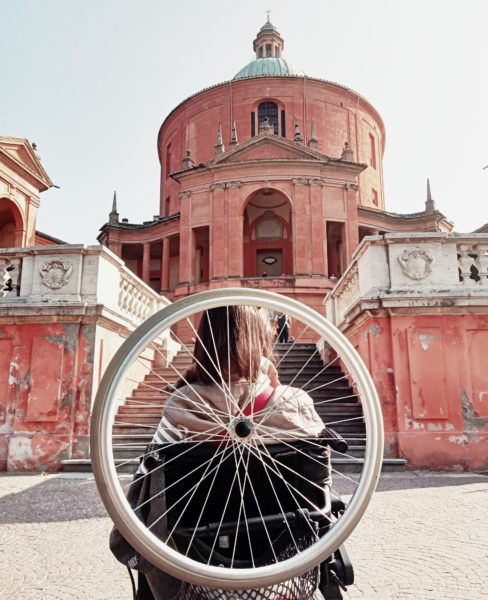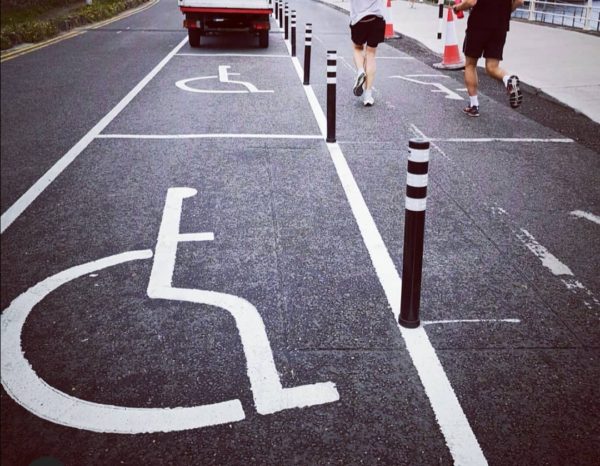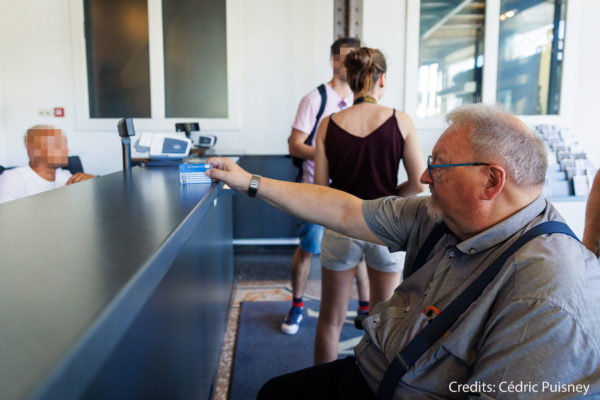“What has the EU ever done for me? Why should I vote in the European elections?”
These are two questions that we get daily, and the answers are simple: first, more than you think. Second, so it can do more.
The EU significantly impacts the lives of persons with disabilities. It not only passes laws and initiatives that are generally more progressive on disability rights than national initiatives, but it also directs funding to help them. This is true even for richer countries, despite some politicians claiming that they spend more in the EU than they get from it.
The next elections for the European Parliament will take place from the 6 to 9 June 2024 (depending on the country). Here are ten reasons why you should go and vote (if you are not one of the 400.000 citizens currently unable to vote due to discriminatory laws):
1. Because the EU fights for accessibility
The European Union has pushed national governments to improve the accessibility of public services and approved laws that will gradually improve the accessibility of products and services. The Web Accessibility Directive, adopted in 2016, obliges public sector websites and apps to be accessible to persons with disabilities. The European Accessibility Act – which currently needs to be implemented by national governments – will guarantee that a range of products and services are increasingly accessible for persons with disabilities. The EU even created the AccessibleEU Centre to help countries and private organisations become more accessible.
Vote for more: Your vote is important in asking for more. The Accessible EU Centre is a good start, but the disability movement is asking that the EU create a true European agency for accessibility that can audit every EU country, take complaints, and impose penalties if countries don’t improve their accessibility.
Good to know: It’s important to understand that the laws adopted by the EU are ‘minimum standards’. This means that an EU law cannot diminish the rights you already have. For instance, if your national law grants 20 days of parental leave and an EU law sets a minimum of 10 days, it doesn’t mean you lose 10 days. It means that countries offering less than 10 days of paternity leave must increase it.
2. Because EU money supports persons with disabilities

Supporting persons with mental health issues in Finland. Improving the accessibility of the metro in Madrid, Spain. Funding programmes that support children with disabilities in Lithuania.
EU funds directly support many of the programmes and projects that are essential in improving the quality of life of persons with disabilities – projects that are often ignored or not prioritised by national funds. More than that, these funding programmes often influence national countries to spend more money on disadvantaged groups – money that would otherwise be spent in less useful ways.
Vote for more: While these funds have been essential in supporting persons with disabilities, they can do more – especially in the areas of education and employment. This is why we are asking for EU funding to support a new initiative, the European Disability Employment and Skills Guarantee, that would support creating accessible education and training opportunities, the quality employment of persons with disabilities, and partly fund reasonable accommodation and changes to workplaces to make them more accessible.
3. Because the EU protects you at work

In 2000, the EU passed a law that prohibits discrimination at work. This means that we are protected against discrimination when we work or have work-related training. It also means that employers need to provide adjustments and flexibility to enable persons with disabilities to be able to carry out their work.
While the situation is far from perfect, it is because of this law that you can go to court or ask for the support of an equality body if you were discriminated against. This law protects you against discrimination when applying for a job, if you are fired from your job because of your disabilities or when your employer refuses to grant you the adaptions needed to do your work.
Vote for more: While this protection only extends to employment, we believe that it could be more. National governments have been blocking a law introduced and supported by the European Commission and Parliament: the Equal Treatment Directive. Your support is essential to ensure the Institutions push for the adoption of this law during the next mandate.
4. Because the EU protects you when travelling

The EU protects you when travelling across borders, from one country to another. First, you have the right to support and compensation in many cases: if the trip is delayed or canceled or if you are denied boarding under certain circumstances.
Then, as a person with disabilities, you have the right to assistance in many transport modes. Unfortunately, you still have to pre-notify and pre-book assistance in most cases when travelling. But things are improving: a new law on train travel reduces pre-notification times, improves staff training and strengthens compensation.
Vote for more: Protections fall especially short on air travel, especially regarding reasons to deny boarding to persons with disabilities and to compensate for damaged assistive equipment. A new bill will be discussed in the next mandate that aims to change air travel rules. We are campaigning to ensure it protects passengers with disabilities.
5. Because of the EU Disability Card
This year, the EU took a tremendous step in recognising persons with disabilities as citizens of the European Union. They agreed on a new European Disability Card that can be obtained by persons with disabilities living in the EU. This Card will let you access the same conditions (priority access, discounts, assistance in transport) when travelling to other EU countries for a short stay or on a mobility programme (tourism, business, visiting, family) as a national with disabilities. The final text of the Card will be approved in the next mandate, and we hope all EU countries will have it by the end of 2028.
Vote for more: Unfortunately, something that is not considered is when persons with disabilities move abroad to live and work for a longer period of time and their need to access specific support and social security. The EU institutions promised to launch further initiatives on this – we need your vote to ensure they keep this commitment.
6. Because you can study, volunteer or travel – and get support
The EU is responsible for programmes that allow young people to travel, live and learn about different countries and cultures. Programmes such as the ERASMUS+, the European Solidarity Corps or the DiscoverEU programme. These programmes include support for persons with disabilities by providing additional funding to cover extra costs related to disability inclusion.
Vote for more: The upcoming European Disability Card will also extend to these programs so you can use it as proof of disability status. Unfortunately, some EU countries want to cut the budget for these programmes, which would probably affect the funding available for persons with disabilities. We need your support to tell the EU that we need more funding – not less.
7. Because you can use your parking card in all EU countries

If you have a disability, you might be entitled to the EU Parking Card. This parking card is recognised in all EU countries and allows you to park in reserved spots all throughout the EU. This means that if you decide to travel to another EU country, you don’t needa local parking card! And there’s good news: the EU just agreed to improve this Card: it will be faster and easier to get, and will include features to prevent fraud.
You can get your parking card from the relevant authority in the country you live in.
8. Because you can go to hospital in another EU country without extra charges
If you have an accident or fall ill in another EU country, you can go to the hospital or doctor thanks to the European Health Insurance Card. That way, you don’t have to cut your travel short due to unaffordable health costs. But attention: you will pay the same as what the people living in that country pay, not what you would pay in your home country. More: you also have some protections and rights when seeking medical care abroad.
9. Because it gives you rights if you are a victim of crime or violence
If you are the victim of a crime anywhere in the EU, countries must grant you rights to information and support in a format accessible to you – this is thanks to an EU law called the Victim’s Rights Directive. This year, the EU also took an important step to combat violence against women – such as online violence and harassment – by adopting a law that will make EU countries guarantee support in accessible ways orgive higher penalty to the offender if you are targeted because of your disability.
Vote for more: The EU is revising the Victims’ Rights Directive and we are asking for it to be even more demanding when it comes to the rights of persons with disabilities. We are also asking the EU to ensure all countries forced sterilisation of women with disabilities.
10. Because 400.000 people want to vote but can’t

If all the reasons didn’t convince you, maybe this will: 400.000 Europeans cannot vote due to national discriminatory laws and practices that exclude them because of their disability. We need your vote to help change this – we need to ensure that all persons with disabilities have the right to vote.
11. Because we can fight better together
Things can be better. Things need to be better. Persons with disabilities should have the right to move and live abroad without losing support and allowances. We have the right to a fully accessible world. We have the right to quality employment and education.
The European Union is not perfect. But it also allows persons with disabilities to come together, share experiences, and join forces to ensure that countries, regions, and local authorities make changes and build an inclusive future for us and for all.
On June 6 to 9, we call on you to live up to our movement’s motto: ” Nothing without us” by showing up and voting for a better life for people with disabilities.
Who to vote for?
We will not say “vote for this or that party”. What you can do is check the candidates who signed a commitment to disability rights. You can contact them and let them know that you might vote for them also because of that. If your favourite candidate is not on the list, easy: contact them and tell them to sign the pledge.
